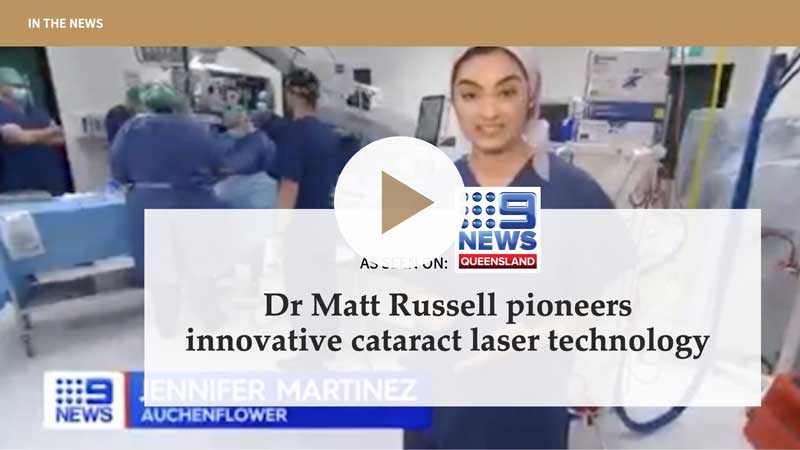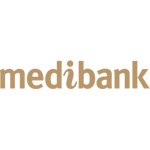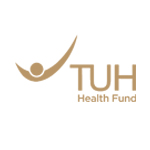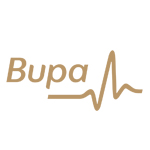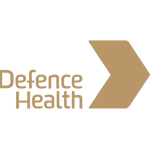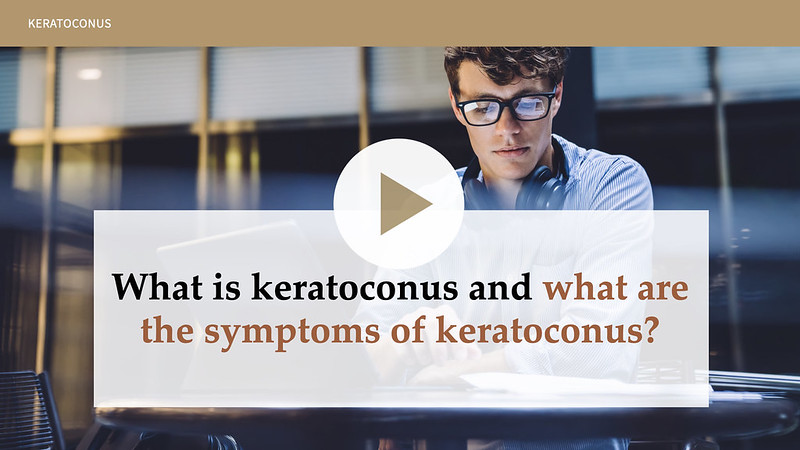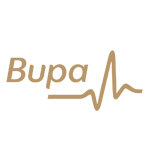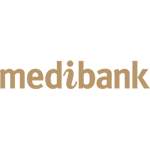Enjoy great reading and distance vision without glasses
Laser cataract surgery treats your cataracts and has the potential to dramatically reduce your need for reading and distance glasses
Restore your most precious sense
After laser cataract surgery, we will have removed your cataracts and aimed to significantly reduced, if not eliminated, your dependency on glasses – particularly for reading and distance.
Revitalise your energy
Achieve the very best that cataract surgery can offer. Many of our patients find having less dependence on their glasses revitalises their energy and gives them a level of confidence they never knew they’d lost. They no longer have to rummage around for their glasses just to read a menu or use their phone.
Reclaim your freedom
One of the best things about laser cataract surgery is how it can make even the simplest activities easier and more enjoyable. You should no longer need to worry about how poor vision might interfere with your plans. Our patients report an easing sense of freedom and convenience.
Revolutionise your life
Our patients are thrilled knowing that they won’t have to miss out on life’s little pleasures, whether it be the smile of a grandchild, the colours of the sunset or simply getting stuck into a good book.
Restore your most precious sense
After laser cataract surgery, we will have removed your cataracts, and significantly reduced, if not eliminated, your dependency on glasses – particularly for reading and distance
Revitalise your energy
Achieve the very best that cataract surgery can offer. Many of our patients find that being freer of their glasses not only revitalises their energy but gives them a level of confidence they never knew they’d lost. You won’t have to rummage around for your glasses just to read a menu or use your phone.
Reclaim your freedom
One of the best things about laser cataract surgery is how it can improve even the simplest things in an average day. You will no longer need to worry about how poor vision might interfere with your plans. Our patients report an easing sense of freedom and convenience.
Revolutionise your life
Patients are thrilled knowing that they’ll never have to miss out on life’s little pleasures, whether it be the smile of a grandchild, the colours of the sunset or simply getting stuck into a good book.
Take our quick suitability quiz to discover which type of cataract surgery is right for you
When it comes to cataract surgery, there is a world of choice available that most people sadly miss. Avoid disappointment and discover which option is best suited to your needs and lifestyle in just a few minutes
Different types of cataract surgery for different needs
Together, we’ll assess your candidacy and recommend the best solution to suit your needs and lifestyle
| Standard Cataract Surgery | Lifestyle Cataract Surgery | Laser Cataract Surgery | |
|---|---|---|---|
| Removal of Cataract | |||
| Method of Removal |
|
|
|
| Reduced dependence on glasses for distance and mid-range vision | |||
| Reduced dependence on glasses for all activities | |||
| Who is this suitable for? | No concerns with wearing glasses after surgery | Would prefer to use glasses only for certain tasks | Would like to reduce dependence on glasses for all tasks |
| Precise Enhancement Procedures | Not required (vision after surgery can be corrected with glasses) | Occasionally required if there is greater-than-expected dependence on glasses* | Can be performed and is included in original surgery costs |
*Enhancement procedures such as laser refractive surgery or piggyback IOL insertion are at cost and not covered by Medicare or health funds
Expert options to treat cataracts and other eye conditions in Brisbane
If you can see yourself below, we can help you

Treat your
cataracts
Glasses are ineffective once cloudy vision starts getting in the way.1As the cataracts advance, c., 2021. As the cataracts advance, can my glasses be made stronger periodically until I decide it is time for surgery?. [online] American Academy of Ophthalmology. Available at: <https://www.aao.org/eye-health/ask-ophthalmologist-q/glasses-cataracts> [Accessed 16 June 2021]. Activities that you once enjoyed, like reading and walking can become a tiring challenge.
Fortunately, with cataract surgery, we can easily remove those grey clouds from your vision so that you can resume life as usual with your favourite pair of specs.
Learn more about standard cataract surgery.

Treat cataracts AND reduce your dependence on glasses
Being forced down the route of cataract surgery isn’t great. Still, if you’ve ever fancied reducing your need for glasses, it could be a blessing in disguise. Lifestyle and laser cataract surgery can remove your cataracts and give you a visual enhancement tailored to your unique needs and lifestyle.
Learn more about lifestyle cataract surgery and laser cataract surgery.

Halt the progression of your glaucoma
Having a sight-threatening condition like glaucoma can be scary. Early detection and treatment are often critical for preserving a good level of vision, but knowing the treatment options can be confusing.
We understand the severity of the situation and are here to guide you towards the right treatment for your unique eyes.
Learn more about glaucoma treatment.

Find help for another eye problem
Any issue with your eyes can be exhausting and stop you from engaging in activities you enjoy.
Fortunately, we’ve built an impressive reputation for the treatment of many complex eye conditions including keratoconus, age-related macular degeneration, diabetic retinopathy, central serous chorioretinopathy (CSCR) and ocular surface disease.
Learn more about our full range of eye treatments.
Book an initial consultation to improve your quality of life
OPENING TIMES
Monday – Friday: 8 AM – 5 PM
CONTACT DETAILS
Call us on 3725 0222 or fill in the form below to request an appointment
Restore your vision and reduce your dependence on eyeglasses, readers and bifocals
Laser cataract surgery suitability criteria
Cataracts occur, affecting most of us when the natural lens of our eye ages and loses its clarity. As a cataract progresses, the natural lens becomes hazy and discoloured. This causes your eyesight to worsen.
- Your vision becomes blurred and cannot be corrected with glasses
- Reading small print becomes challenging
- Colours fade
- Your confidence driving at night begins to falter. This is because the cataract scatters light causing glare sensitivity.
At OKKO Eye Specialist Centre, our goal is to restore your vision using the most advanced lens technology and laser vision correction techniques.
To be sure that you are suitable for laser cataract surgery, we will need to examine your eyes thoroughly at your initial assessment. This will include multiple advanced diagnostic tests such as:
Visual acuity: to understand how far down the eye chart you can read.
Refraction: to determine the refractive error in your eyes.
Pachymetry: to measure the thickness of your cornea.
Topography: to generate advanced maps of the cornea to provide a contour plan of the front surface of the cornea. (This aids in the diagnosis of astigmatism and the exclusion of certain diseases).
Biometry: to measure the axial length, curvature and chamber depths of your eye.
Optical coherence tomography (OCT): to provide detailed images of the retina.
How laser cataract surgery works
Up to 20% of people undergoing cataract surgery will have low-level focusing problems following cataract surgery, resulting in a dependence on glasses. This may interfere with their satisfaction with their vision following surgery. These people would benefit from laser cataract surgery.
Laser cataract surgery uses the latest techniques in cataract surgery and laser vision correction to maximise your freedom from glasses after cataract removal.
Laser cataract surgery can be broken down into two steps:
Step 1: We use a laser to access the capsule the natural lens sits in and remove the cataract.
Step 2: We replace the cataract lens with a new advanced lens.
A critical part of step 1 is creating a capsulotomy or opening the capsule which contains the cataract. In standard cataract surgery, the surgeon makes the incision manually. In laser cataract surgery, a laser makes the incision. This method is more precise and has higher repeatability2Dick, H. B., & Schultz, T. (2017). A Review of Laser-Assisted Versus Traditional Phacoemulsification Cataract Surgery. Ophthalmology and therapy, 6(1), 7–18. https://doi.org/10.1007/s40123-017-0080-z.
The laser capsulotomy technique also enables us to use more advanced extended depth of focus (EDOF) implants designed explicitly for laser cataract surgery. This improves the stability of multifocal implants. Your surgeon can position these lenses with a much higher degree of accuracy, resulting in improved visual outcomes.3Dick, H. B., & Schultz, T. (2017). A Review of Laser-Assisted Versus Traditional Phacoemulsification Cataract Surgery. Ophthalmology and therapy, 6(1), 7–18. https://doi.org/10.1007/s40123-017-0080-z.
The specific type of lens that will best suit you depends on your vision needs and preoperative testing. At your assessment, we conduct extensive analysis to determine which lens will meet your lifestyle requirements.
Sometimes after cataract surgery, the eye needs laser vision correction to fine-tune the focus. Using LASIK and SmartSurface technology, we can refine the focus of your eye and the quality of your vision following surgery.
Our surgeons have a laser vision correction background. This gives them a specific skill set to consider your quality of vision after the removal of cataracts.
The lenses
There is no single “best” lens that would meet the needs of everyone. Intraocular lenses vary as much we differ as individuals with our own vision and lifestyle needs. We have a complete range of the latest lens types and laser vision correction techniques available. These will help you achieve the vision that will best suit your lifestyle and vision needs after surgery.
We can use a lens implant (Intraocular lenses) to give a range of vision, from distance to close. We calculate the lens power using scans taken at your initial assessment for surgery that assess the abilities of your natural lens.
At this assessment, your ophthalmologist will discuss lens options with you and the target focus for your eyes after surgery. This enables us to select the best implant and focus target for your needs. Some possibilities include:
Multifocal lens implant combined with extended-depth-of-focus (EDOF) lenses – reduces your dependence on glasses, readers, and bifocals for most day-to-day distance tasks.
EDOF lens implant – reduces your dependence on glasses, readers, and bifocals for most day-to-day near and distance tasks
Astigmatic/Toric lenses – Some patients have a high degree of astigmatism. Fortunately, we can correct this with a toric lens, enabling you to see well without glasses or contact lenses for distance and close-up tasks.
Advantages and disadvantages
Advantages
- Cataract surgery is the most commonly performed surgery in Australia; the procedure typically takes less than half an hour and does not require an overnight stay
- Cataract surgery is one of the safest surgeries performed on the human body. Generally, your recovery will be short and uneventful, and you will be kept informed at every stage
- Vision is usually improved the day after surgery. Maximum improvement is usually achieved with EDOF, trifocal and toric lenses.
- The lens implants are permanent and ordinarily do not need to be replaced – they are good for the life of the patient
Disadvantages
- Mild discomfort: After surgery, it is normal to feel mild discomfort, irritation or a stingy sensation. If you experience these symptoms you can take paracetamol (such as Panadol, Panamax, Dymadon or Panadeine). Mild mucous, a small amount of bloody discharge and watering of the eye is also considered normal
- Laser cataract surgery is more costly than Standard or Lifestyle Cataract surgery
- Driving is not permitted for 24 hours following surgery, due to the sedation used
- Light sensitivity: It is also quite normal to be sensitive to light after surgery. You will be given a pair of dark glasses after your procedure
- You must avoid:
- Rubbing your eyes
- Engaging in strenuous activity/exercise, gardening or heavy lifting (greater than 10kg) for two weeks
- Wearing eye make-up for one week
- Swimming for two weeks
- Allowing water/shampoo to come into direct contact with the eye for two weeks
Laser cataract surgery risks
There is a 98 – 99% likelihood of undergoing cataract surgery without complications that may permanently affect your best possible vision.
The risks of not having cataract surgery
In certain people, the growth of a cataract can make them prone to primary angle-closure glaucoma. This is where the drainage channel in the front of the eye (trabecular meshwork) is gradually narrowed by the increasing size of the crystalline lens. Eventually, the drainage channel can become completely blocked, resulting in a rapid increase in the pressure within the eyeball and a painful red eye. Long-sighted patients are more likely to be at risk of angle-closure glaucoma. Your eye specialist will be able to assess if you are at risk of primary angle-closure glaucoma and whether you would benefit from cataract extraction or another treatment to prevent this serious condition.
Options and alternatives
The only way to treat a cataract is to surgically remove it and implant an artificial lens in its place.
An alternative to laser cataract surgery is:
- Lifestyle cataract surgery – Restore clarity of vision AND reduce your dependence on glasses to suit your active lifestyle
- Standard cataract surgery – An ideal treatment for someone who is happy to not be free from glasses after the treatment
Does a non-surgical treatment exist?
The only way to treat a cataract is to surgically remove it and implant an artificial lens in its place.
In certain people, the growth of a cataract can make them prone to primary angle-closure glaucoma. This is where the drainage channel in the front of the eye (trabecular meshwork) is gradually narrowed by the increasing size of the crystalline lens.
Eventually, the drainage channel can become completely blocked, resulting in a rapid increase in the pressure within the eyeball and a painful red eye. Long-sighted patients are more likely to be at risk of angle-closure glaucoma. Your eye specialist will be able to assess if you are at risk of primary angle-closure glaucoma and whether you would benefit from cataract extraction or another treatment to prevent this serious condition.
We perform laser cataract surgery in a 20-minute minimally invasive day surgery procedure. We perform the procedure under intravenous sedation and local anaesthesia. Because of the sedation, most patients aren’t aware of the surgery taking place. They recover from the sedation and return home usually within 40 minutes of the operation.
Step one: We use local anaesthesia in the form of eye drops and light (twilight) sedation. We make a tiny incision in the cornea – the transparent membrane on the surface of the eye.
Step two: Once we have removed the cataract, we implant the selected artificial lens (intraocular lens or IOL) using a special lens injector. In the majority of cases, the intraocular lenses or IOL will sit within the natural ‘bag’ that held the original lens, and the incision heals on its own.
Step three: Once the surgery is complete, we place a clear shield over the eye, which stays on for four hours post-surgery and reduces the risk of infection. We will ask you to commence the use of postoperative drops which consist of an antibiotic drop and two anti-inflammatory drops.
The total time at the hospital is approximately three hours.
Most patients can return to many routine daily activities, including driving within two or three days of their surgery.
Laser cataract surgery results
Following cataract surgery, you’ll have a higher level of glasses independence for both near and distance tasks.
Take the first step to address your cataracts
Book a consultation, and one of our Brisbane eye experts will guide you towards the right treatment for your eyes and lifestyle so you can get more confidence and clarity from your vision
Insurers
We’ve got you covered, OKKO is pleased to work with all the insurers below:
News and FAQs
Learn more about our quality ophthalmology services and how they can provide you with the best possible eye health and vision outcomes
Our Brisbane eye specialists
We are dedicated to providing you with the best possible eye health and vision outcomes

Dr. Matthew Russell, MBChB, FRANZCO
Brisbane Eye Surgeon
I am a specialist ophthalmic microsurgeon, internationally trained retinal surgeon, medical retinal diseases specialist, and cataract surgeon. With a career that spans over 15 years, I have mastered the ability to achieve precise results with the aim of helping patients regain their confidence and youthful energy.

Dr Judy Ku, MBChB, FRANZCO
Specialist ophthalmic surgeon
I am a specialist in glaucoma, cornea & external diseases and cataract surgery. I am passionate about assisting my patients to achieve their full visual potential. I feel extremely privileged to have the opportunity to restore sight and to improve people’s quality of life.




